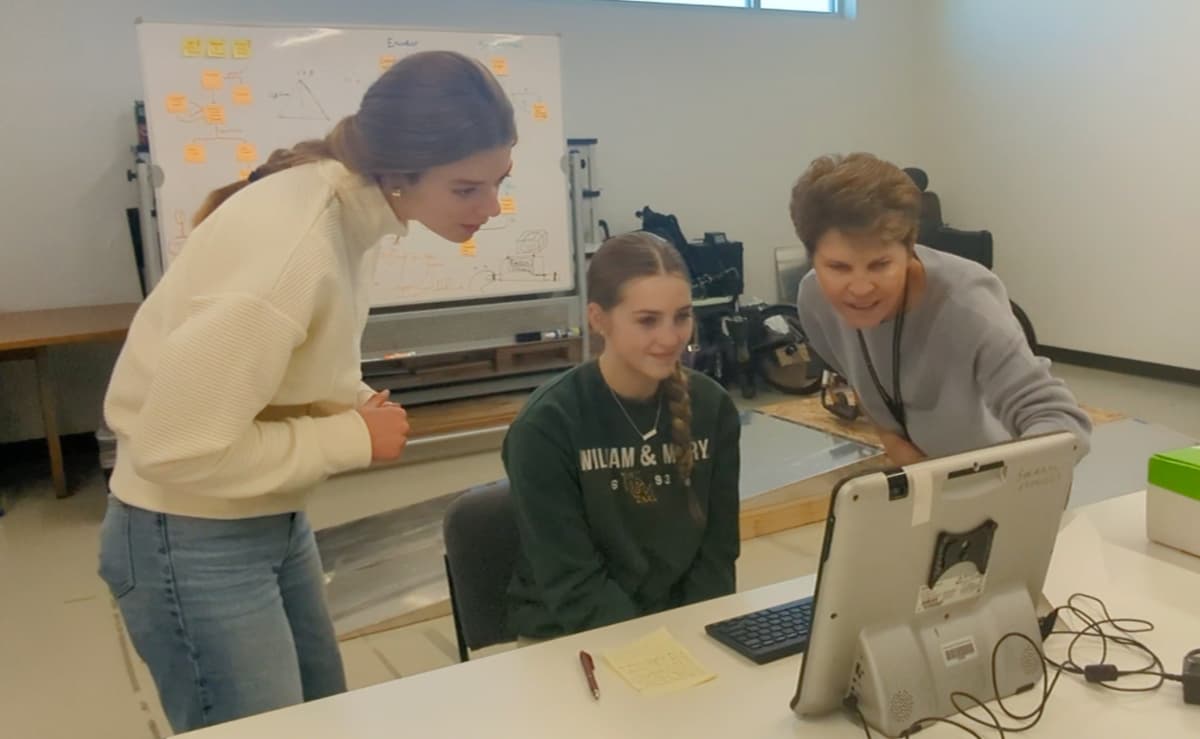Dr. Cathy Bodine: A Lifelong Commitment to Innovation and Inclusion
Julie McMorris | School of Education & Human Development Apr 9, 2025.jpg?sfvrsn=93628b4_1)
Dr. Cathy Bodine (PhD ‘02), an esteemed alumna of the University of Colorado Denver (CU Denver) and professor of bioengineering in the College of Engineering, Design and Computing, has built an extraordinary career at the intersection of technology, disability, and aging. As a professor and a leader in several initiatives at CU, Dr. Bodine's work continues to make significant strides in enhancing the lives of people with disabilities, particularly older adults. Her journey through CU Denver, as well as her vast contributions to the fields of bioengineering and clinical research, reflect her dedication to innovation and inclusivity.
Dr. Bodine's story at CU Denver began in the late 1990s when she joined what was called the PhD in Educational Leadership and Innovation program in the School of Education & Human Development. At that time, she was already working at the University of Colorado Health Sciences Center (now Anschutz Medical Campus), but she realized that a PhD was necessary to further her career. She chose CU Denver for its flexible approach to education, allowing her to customize her studies to align with her interests in technology and disability. Her passion for using technology to aid people with disabilities and older adults was central to her coursework and later became a foundation for her work in academia and industry.
“What I loved about the innovation was that I was able to take courses that fit my needs,” Bodine said. She especially appreciated the ability to integrate courses from business management into her education, allowing her to expand her leadership and innovation skills, which would later be crucial in her career. These early experiences would shape the trajectory of her career and inspire her to develop groundbreaking solutions that address the challenges faced by people with disabilities.
Her work at CU Denver has spanned many roles and significant accomplishments. After completing her PhD, Bodine transitioned to working in various leadership positions, contributing to the development of technology to improve the quality of life for individuals with disabilities. She now serves as a professor in the Department of Bioengineering, holds joint appointments in pediatrics, physical medicine and rehabilitation, and orthopedics, and directs several key initiatives at CU, including the Center for Inclusive Design and Engineering (CIDE) and the Coleman Institute for Cognitive Disabilities.
One of Bodine's most notable roles is as the director of the Innovation Ecosystem for the Colorado Clinical and Translational Sciences Institute (CCTSI), where she collaborates with faculty from various disciplines to bring innovative ideas from the lab to the marketplace. This work is critical as it helps bridge the gap between groundbreaking research and real-world applications that can improve the lives of individuals with disabilities and older adults.

Throughout her career, Bodine has also focused on the growing need for technological solutions that help older adults remain independent in their homes. With the aging baby boomer population, the demand for accessible technologies that support aging in place has skyrocketed. Bodine's leadership in this field is crucial in ensuring that innovative technologies, such as AI and machine learning, are developed with the needs of older adults and people with disabilities in mind.
“I think the field is exploding right now,” Bodine said. “The private sector has really taken off understanding that their customer has changed. It is an older adult who may have a vision problem, hearing loss, or mobility impairment. Anything we design that helps an older adult be safe at home is going to help a younger person with a disability.”
For Bodine, one of the most fulfilling aspects of her career is working with the next generation of innovators. She is passionate about mentoring students, who she describes as “smart, talented, and driven.” Through her leadership, she is helping guide young researchers and engineers to become the leaders of tomorrow in the fields of technology and disability. Dr. Bodine’s own career trajectory exemplifies the importance of persistence, collaboration, and innovation in achieving impactful change.
Reflecting on her time at CU Denver, Dr. Bodine notes that the university’s supportive environment has played a significant role in her success. “CU in general has such a bootstrap mentality that you have much more flexibility to grow a program or try new things,” she said. This flexibility has allowed her to build and expand programs that bring together engineers, clinicians, and industry partners to create solutions that transform the lives of those with disabilities and older adults.
She is particularly proud of the longevity of her work. “Our program has been soft-funded for 29 years, and it will be 30 years this June since I came here,” she said. The ability to sustain and grow a program over such an extended period is a testament to the strength of her leadership and the impact of her team's work. Many members of her team have been with her since the beginning, a reflection of the deep commitment and passion shared within her group.
Looking ahead, Bodine is focused on building the next generation of innovators and leaders in her field. She continues to push for new advancements in technology that support independent living and improve the quality of life for people with disabilities and older adults. With the growing importance of these issues, there is still much work to be done, and she is dedicated to driving this field forward.
Bodine continues to make a lasting impact not only on her students but on the broader community of researchers, engineers, and clinicians working to improve the lives of millions with disabilities. Through her leadership and passion, she exemplifies the power of combining education, innovation, and service to create a more inclusive world.